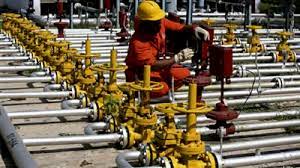
Since the discovery of significant natural gas reserves off Mozambique’s northern coast in 2010, hopes have been high for the country’s economic prosperity. Projections from the International Monetary Fund (IMF) in 2016 anticipated substantial revenue from liquid natural gas (LNG) exports, predicting a total of $500 billion by 2045 and an average real GDP growth rate of around 24% from 2021 to 2025. However, despite these expectations, Mozambique’s economic development has stagnated.
Rates of extreme poverty have persisted, particularly in regions like Cabo Delgado, where LNG facilities are being constructed.
While optimism regarding the potential of natural gas to boost the economy remains, similar hopes in other African nations have often led to disappointment. Concerns about Mozambique’s LNG projects have been raised, particularly regarding their design and potential revenue risks. The structure of the deals suggests that significant revenue for Mozambique will be delayed until the mid-2030s and 2040s, heavily dependent on the global LNG market, which may diminish due to climate change commitments.
Moreover, the involvement of foreign companies in the projects, coupled with tax avoidance strategies, raises questions about the actual benefits accruing to Mozambique. Uncertainties about long-term demand for LNG, volatile market conditions, and ongoing armed conflict in Cabo Delgado further complicate the outlook for Mozambique’s LNG aspirations.
Considering these challenges, Mozambique must reconsider its reliance on LNG for economic development. There is a pressing need for a comprehensive reassessment of existing projects, prioritizing alternative initiatives that promote long-term sustainability and address socio-economic issues. Thorough analyses are required to identify the most viable opportunities for the country’s future development.
